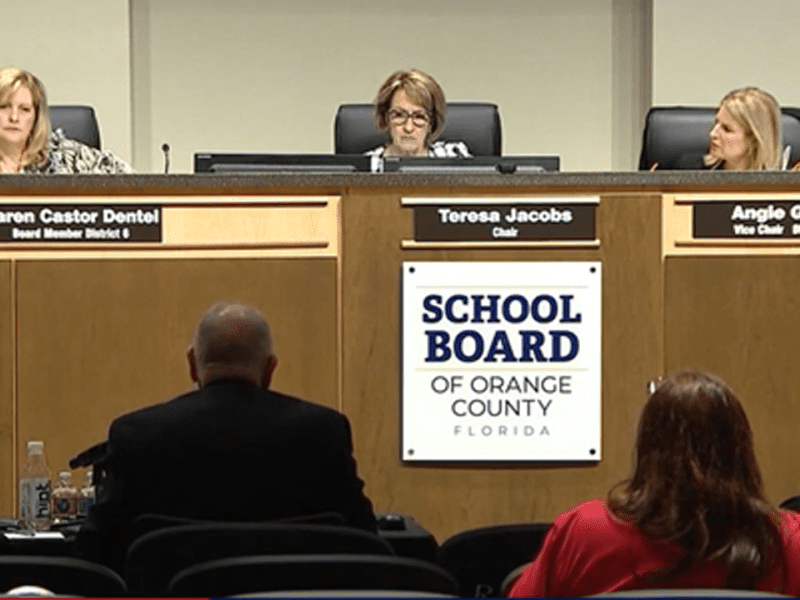
Florida School Board Association Responds to National School Board Association’s Letter to President Biden
Space Coast Daily | By Space Coast Daily | October 11, 2021
The Florida School Boards Association has taken a stand against the National School Boards Association for its request on Sept. 29 for federal investigation assistance into local school board protesting activities.
In a letter dated October 11, the Florida School Boards Association Executive Director Andrea Messina said the organization is withholding its dues and membership until its demands have been met.
The letter, written on behalf of the members of the FSBA by Messina, was a result of a call-to-action by the bipartisan board of directors, who were unsettled by the national organization’s letter which has gained extensive national attention.
“The National director circumnavigated the governing process and overstepped their authority and should be held accountable,” said Brevard Public Schools Board Member Matt Susin, who is also a member of the FSBA board of directors and chairman of the FSBA Advocacy Committee.
“We value parental involvement, we value parental input, and we value citizen engagement. We cannot squelch dissent which is the bedrock of our democracy. If civil, civic discourse strays into improper behavior we have and will continue to look to our local law enforcement for assistance.”
Messina’s letter states, “As you are aware, we did not submit payment for 2020-2021 dues, which were due July 1, 2021. We have been clear about reassessing the value of our affiliation with NSBA due to concerns surrounding NSBA’s governance, leadership, transparency, and failure to embrace non-partisanship. Due to the fact we have not seen the changes we would have expected given the number of states, who are your members and have expressed these and similar concerns, nor have we received any promised plan or timeline to accomplish these changes, we will continue to withhold our dues until further notice.”
“As local school board leaders, we must fully appreciate and embrace the value of local feedback and input from parents, stakeholders, and taxpayers around issues of our public schools,” said Dr. Steve Gallon III, vice chairman of the Miami Dade School Board.
“That being said, though I reject any acts of violence, threats, or intimidation, I would never support any effort to thwart public participation and input in the democratic process involving our schools, and have full confidence in the capacity, courage, and commitment of our local school board and law enforcement officials in providing for our safety, security, and orderly conducting of school board business.”
Tim Bryant, Chairman of Okaloosa School Board stated, “I appreciate FSBA Board of Directors and their bold statement holding the National School Board Association accountable for going rogue which endangered more board members than it helped. This will hold people above us accountable for their actions.”
Susin said the bipartisan response of the FSBA is a result of the commitment of its members to collaboration and unity, and its value in following the governing process of local, state and national organizations.
Citing “an increase in harassment, intimidation and threats of violence against school board members, teachers and workers in our nation’s public schools,” on Oct. 4 Attorney General Merrick Garland directed the FBI and U.S. Attorneys’ Offices to meet in the next 30 days with federal, state, Tribal, territorial and local law enforcement leaders, “to discuss strategies for addressing this disturbing trend.”
According to the Attorney General’s memorandum, the Justice Department will launch a series of additional efforts in the coming days designed to address the rise in criminal conduct directed toward school personnel. Those efforts are expected to include the creation of a task force, consisting of representatives from the department’s Criminal Division, National Security Division, Civil Rights Division, the Executive Office for U.S. Attorneys, the FBI, the Community Relations Service and the Office of Justice Programs, to determine how federal enforcement tools can be used to prosecute these crimes, and ways to assist state, Tribal, territorial and local law enforcement where threats of violence may not constitute federal crimes.





